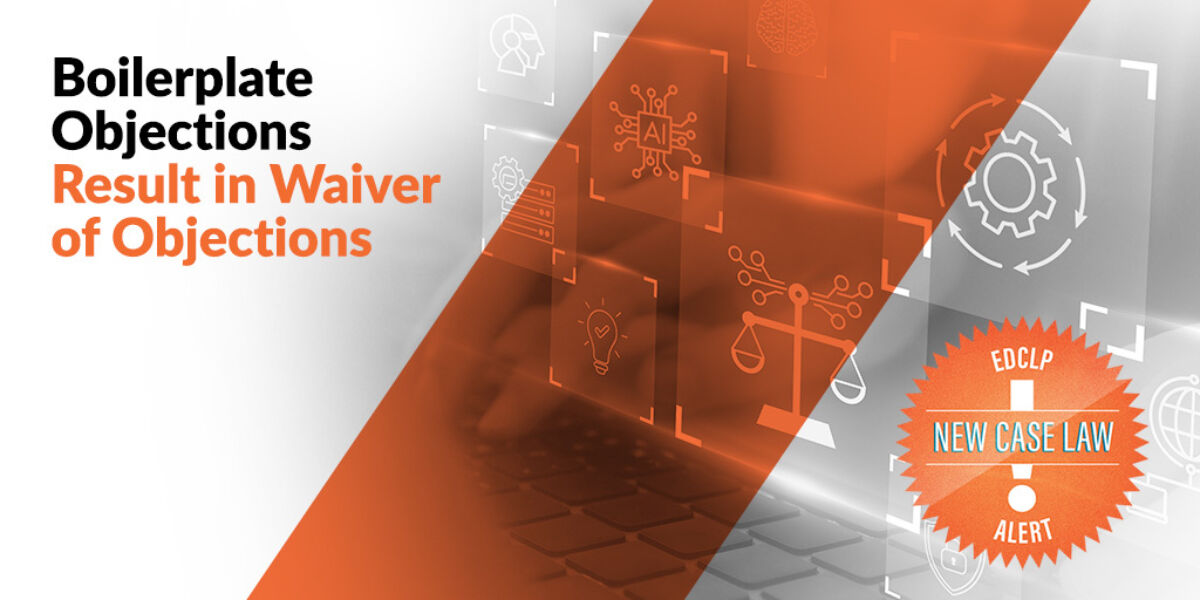E-Discovery
Boilerplate Objections Result in Waiver of Objections

Bocock v. Innovate Corp. (Del. Ch. Dec. 6, 2023)
Why This Alert Is Important
Since the FRCP amendments in 2015, courts have found that “generic” or “boilerplate” objections under Rule 34(b)(2)(B) are not sufficient and may result in waiver of those objections. In this case, plaintiffs’ failure to respond and failure to object with specificity to defendants’ discovery requests resulted in a waiver of objections except as to privilege and also an award of attorneys’ fees.
Overview
In June 2021, 26 plaintiffs filed an amended complaint against defendants. Sixteen months later, in October 2022, the court dismissed the majority of the claims. (The nature of the claims is not pertinent to this ruling.)
In May 2023, defendants served interrogatories and requests for production to the plaintiffs. One month later, plaintiffs requested and were granted a 15-day extension to respond to the discovery requests. At the end of that period, on June 20, 2023, plaintiffs provided a single response: a seven-page set of “General Objections” that:
- Were not responsive to any specific discovery request
- Consisted entirely of boilerplate objections
- Were duplicative in many instances
The defendants gave plaintiffs six days to remedy the deficient responses. When plaintiffs failed to do so, and also failed to meet and confer with defendants, defendants moved to compel production and for an order awarding defendants attorneys’ fees, and argued that plaintiffs had waived their objections to the discovery requests.
Ruling Summary
- Lack of “specific or substantive responses” damning. The Vice Chancellor of the Court found that plaintiffs’ General Objections “consist of boilerplate and, in many instances, duplicative objections that are untethered to any specific request or interrogatory. Inexplicably, Plaintiffs did not provide a specific or substantive response to a single interrogatory or request for production.
- Failure to “walk back… boilerplate” objections. Plaintiffs did not defend their objections as “compliant” with court rules; rather, they argued that a waiver was too strong a sanction, citing Twitter v. Musk as a precedent. The court noted, however, that, in Twitter v. Musk, the defendants “walked back most of their initial objections,” while plaintiffs here continued to repeat the “same general objections verbatim and incorporated them into every specific interrogatory response and response to the requests for production.
- Objections to discovery waived. The court found that plaintiffs’ failure to provide specific or substantive objections to defendants’ discovery requests resulted in a waiver of objections except on grounds of privilege and work product protection. Given plaintiffs’ unjustified failure to “serve timely and compliant responses,” the court awarded reasonable fees and expenses to defendants, as well.
Case Law Tip
Have questions on how the FRCP applies to e-discovery? Want to make sure your arguments align with critical rules governing e-discovery? Download this FRCP E-Discovery Quick Guide to get all your questions answered. Download it today!